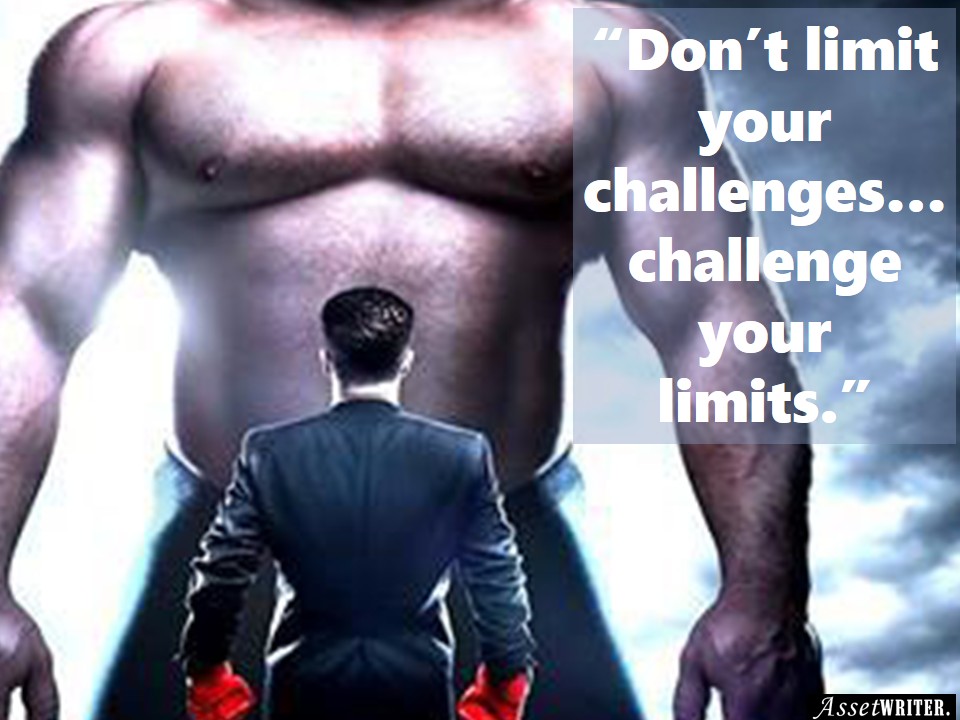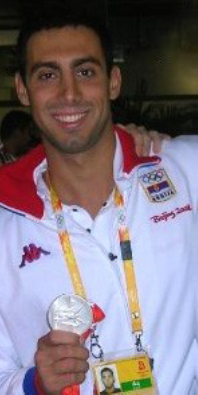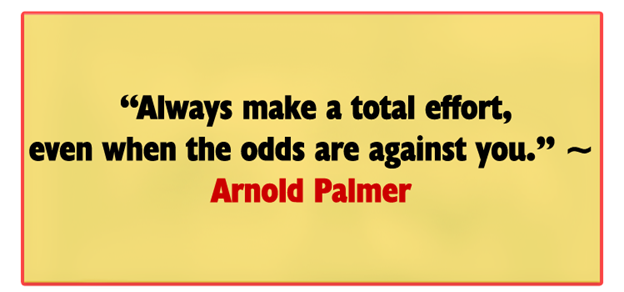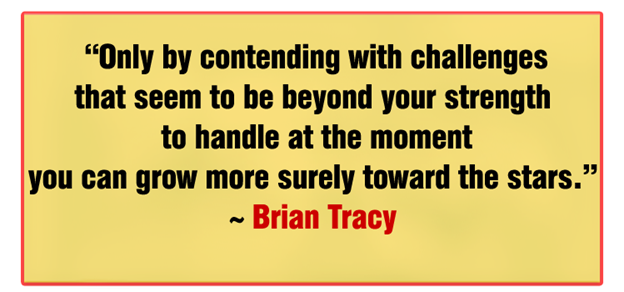Remember the guy who lost to Michael Phelps in the 100-meter butterfly in the 2008 Beijing Olympics? If you don’t, you are not alone… lots of us never remember the runners-up. And how very sad, because sometimes they break records themselves!
Anyway, on that fateful day in Beijing, the runner-up, Milorad Čavić, American-born but representing Serbia, touched the wall first at the end of the race, but not hard enough to trigger the timing system. The people’s verdict was that Čavić was cheated that day – by the official timekeeper!
Here’s the story of Milorad Čavić and the gold-class success advice and inspiration we can get from this amazing story. It’s a story with twists and turns, and a bitter-sweet ending…
Before the final of the 100-meter butterfly, Serbian-American swimmer Milorad Čavić caused a minor stir when he said it would be "good" if Phelps lost. "It'd be good for him if he loses,” he said. “It would be nice if historians talk about Michael Phelps winning seven gold medals and losing the eighth to 'some guy.' I'd like to be that guy."
Phelps responded, "When people say things like that, it fires me up more than anything," setting the stage for a memorable encounter. And decades later, it’s still memorable.
“I’d like to be that guy, said Čavić (the David who beats Goliath!) And like in the Biblical story, Čavić has more courage than clout, more grit than grip. What’s more, he probably doesn’t know that Phelps is a high-performance machine on steroids, to coin a phrase.
That’s because Phelps and his coach Bob Bowman have perfected a strategy for winning that should almost never fail.
Also, on the 16th of August when Phelps and Čavić finally compete in the 100-meter butterfly, Phelps already has some big wins under his belt from the 200-meter butterfly, his strongest event, which was held earlier, on the 13th. Phelps also has under his belt a particularly significant small win – as we’ll see shortly. On the 13th, for the 200-meter butterfly, here’s what had happened…
“Back in Beijing, it was 9:56 a.m. – four minutes before the race’s start – and Phelps stood behind his starting block, bouncing slightly on his toes. When the announcer said his name, Phelps stepped onto the block, as he always did before a race, and then stepped down, as he always did.
“He swung his arms three times, as he had before every race since he was twelve years old. He stepped up on the blocks again, got into his stance, and, when the gun sounded, leapt.
“Phelps knew that something was wrong as soon as he hit the water.
“There was moisture inside his goggles. He couldn’t tell if they were leaking from the top or bottom, but as he broke the water’s surface and began swimming, he hoped the leak wouldn’t become too bad.
“By the second turn, however, everything was getting blurry. As he approached the third turn and final lap, the cups of his goggles were completely filled.
“Phelps couldn’t see anything. Not the line along the pool’s bottom, not the black T marking the approaching wall. He couldn’t see how many strokes were left.
“For most swimmers, losing your sight in the middle of an Olympic final would be cause for panic. Phelps was calm. Everything else that day had gone according to plan. The leaking goggles were a minor deviation, but one for which he was prepared.
“Bowman had once made Phelps swim in a Michigan pool in the dark, believing that he needed to be ready for any surprise. Some of the videotapes in Phelps’s mind [visualizations drilled into his brain over several years] had featured problems like this. He had mentally rehearsed how he would respond to a goggle failure.
“As he started his last lap, Phelps estimated how many strokes the final push would require – nineteen or twenty, maybe twenty-one – and started counting. He felt totally relaxed as he swam at full strength.
“Midway through the lap he began to increase his effort, a final eruption that had become one of his main techniques in overwhelming opponents. At eighteen strokes, he started anticipating the wall.
“He could hear the crowd roaring, but since he was blind, he had no idea if they were cheering for him or someone else. Nineteen strokes, then twenty. It felt like he needed one more.
“That’s what the videotape in his head said. He made a twenty-first, huge stroke, glided with his arm outstretched, and touched the wall. He had timed it perfectly. When he ripped off his goggles and looked up at the scoreboard, it said “WR” – world record – next to his name. He’d won another gold.
“After the race, a reporter asked what it had felt like to swim blind. ‘It felt like I imagined it would,’ Phelps said. It was one additional victory in a lifetime full of small wins.”
(Source: The Power Of Habit: Why We Do What We Do In Life And Business by Charles Duhigg)
A guy like that didn’t need the official timer, Omega (or even his eyes) to estimate when to touch the wall at the end of the race, but also more importantly, how to touch it! His timing system was pre-wired in his brain from years of bleeding-edge practice and preparation.
This is how good Phelps is when he competes against Čavić for the 100 meters, aiming to win his eighth gold medal of the Games, in the Men's 100-meter butterfly.
He won the gold, in those dubious circumstances as we’ll see shortly, setting an Olympic record for the event with a time of 50.58 seconds and edging out Čavić, by one one-hundredth (0.01) of a second.
Phelps's 0.01-second finish ahead of Čavić prompted the Serbian delegation to file a protest.
Subsequent analysis of the video by the FINA panel, which required analyzing frames shot 1/10,000th of a second apart, was used to officially confirm Phelps's victory, but the images were not immediately released to the press.
The initial refusal by official timekeeper Omega to release underwater photos of the finish also raised questions due to Phelps's sponsorship relationship with Omega.
Čavić later wrote in his blog, "People, this is the greatest moment of my life. If you ask me, it should be accepted and we should move on. I've accepted defeat, and there's nothing wrong with losing to the greatest swimmer there has ever been."
However, in August 2009, Omega officials stated that while Čavić "for sure" touched the wall first, "Phelps did it more forcefully," thus registering the time first.
Not enough grip on the touchpad to trigger the timing system… imagine losing like that!
At the Beijing Olympics Michael Phelps became the first person to ever win eight gold medals at a single Olympics.
To win the 7th Gold, on August 16, 2008, Phelps came from behind and produced a riveting finish. This was the 100-meter butterfly final and Phelps had never won gold at this event.
But that day in Beijing, when Phelps poked his head up from the water, his coach thought he had lost. His mother thought he lost. Phelps himself wasn't sure. Eventually, Phelps was declared the winner by 0.01 of a second.
Milorad Čavić of Serbia seemed to have touched the wall first. And, in fact, he did – just not hard enough to have the result registered on the touchpad of the Omega timing system.
Interviewed eight years later in August 2016 how he felt about his silver medal from Beijing, this is what Milorad “Mike” Čavić said:
“It's one of my most precious possessions. It's in the States in my safe. A couple times per year, I would look at it just for my own self, outside of appearances.”
Born in Anaheim California on May 31 1984, Čavić has dual American-Serbian citizenship. He has played on the national teams of Yugoslavia (2000-2003), Serbia and Montenegro (2003-2006), and Serbia (2006-20012). He also played on the University of California, Berkeley, team.
Had he won gold in Beijing, he would have retired from the sport that year, Čavić said in the interview. But he stuck around for London 2012.
“Was the Beijing race a factor,” he was asked.
“Yes. Had I won the Olympic gold, I believe I would have retired that year.”
“What were you still hungry for? Gold? Or the feeling of racing well after back surgery in 2010?”
His answer: “More so the hunger of proving that I was not washed up. Medical professionals and coaches told me I would never race again. So for me, it became less about winning Olympic gold and more about proving everyone wrong by winning an Olympic medal. Any medal would have sufficed.”
And so, down but not out after back surgery in 2010, Čavić stuck on for the London Olympics.
The London Olympics, two short years later, were to give Milorad “Milo’ Čavić the opportunity for a rematch with Michael Phelps.
But first, even before the Beijing Olympics, Michael Phelps was already a sensation, the odds-on favorite to win the 100-meter butterfly. So, how did Čavić prepare for Beijing? How do you prepare when the competition is that “unbeaten guy” or any really tough challenge you face in your life?
Most successful achievers understand the need to “give it everything you’ve got;” to make a total effort – but when the odds are stacked against you it becomes very tempting to just pack it up and go home.
When the odds aren’t in your favor this is the time to give it as much effort as you possibly can, if you hope to come out on top…
Čavić made a total effort, preparing for Beijing and subsequently for London in the 100-meter butterfly. For the Beijing event, although he had qualified for the 100-meter freestyle semi-final Čavić withdrew in order to prepare for the 100-meter butterfly. He gave up something of value (the possibility of a win in the 100-meter freestyle semi) to better prepare for something of greater value (the 100-meter butterfly final) – where he hoped to beat Phelps.
So, in his bid to win a gold in Beijing, Čavić for sure made a total effort, even when the odds looked insurmountable; even when, later, in London and recovering from back surgery, the challenge seemed beyond his strength to handle…
Čavić didn’t win a medal in London. He finished tied for fourth place in the 100-meter butterfly. But he made his point and proved the medics wrong – and he’s a better person for having tried… and given it his best. He reached for the stars. And that was a big win.
Čavić’s losses to Phelps aside, Phelps’ exploits in the 200-meter event are further proof of what scientists are discovering every day that our minds and bodies can do great things we have never even dreamed of. Michael Phelps could precisely time his laps, using only a program he had drilled into his brain with years of training – and his “primal” timer was arguably superior to the official, “high-tech” Omega timepiece! How cool is that?
And doesn’t it inspire you to want to achieve mastery in at least one area of your life? Think about it…
In his book, Mastery – The Keys To Success And Long-Term Fulfilment, George Leonard wrote:
“If there is any sure route to success and fulfilment in life, it is to be found in the long-term, essentially goalless process of mastery. The evidence is clear: all of us who are born without serious genetic defects are born geniuses.
“Without an iota of formal instruction we can master the overarching symbolic system of spoken language – and not just one language but several. We can decipher the complex code of facial expressions, a feat to paralyze the circuitry of even the most powerful computer.
“Each of us comes equipped with enough raw ability across the board to achieve that rare and seemingly mysterious state we call mastery in some mode of thought and expression, some interpersonal and entrepreneurial enterprise, some art or craft.
"The real juice of life, whether it be sweet or bitter, is to be found not so much in the products of our efforts as in the process of living itself, in how it feels to be alive."
According to George Leonard Mastery is the mysterious process during which what is at first difficult becomes progressively easier and more pleasurable through practice.
The keyword here is pleasurable, so although the road to mastery may hurt at first and blister your poor feet and hands, or challenge and test you beyond your comfort zone, eventually you get to enjoy the process – and the results!
One unintended side benefit of achieving mastery in one area of your life is that that mastery can, and very likely will, transfer and give you mastery in your line of work, your profession, your career. When this happens you get to live life as it should be lived – having the time of your life doing stuff you’re really, really good at and enjoy doing – day in day out.
Give it a thought!
In closing, do you know someone you care about who’s facing tough challenges in his/her life? We’re all underdogs in this game of life, often enough. This post can help by giving them a new perspective on their problem and boosting their drive and persistence in the process, which should boost your value to them, your contribution. Email them a link to this post, or you can share with all your friends on social media. Hit the share buttons just below this paragraph!












